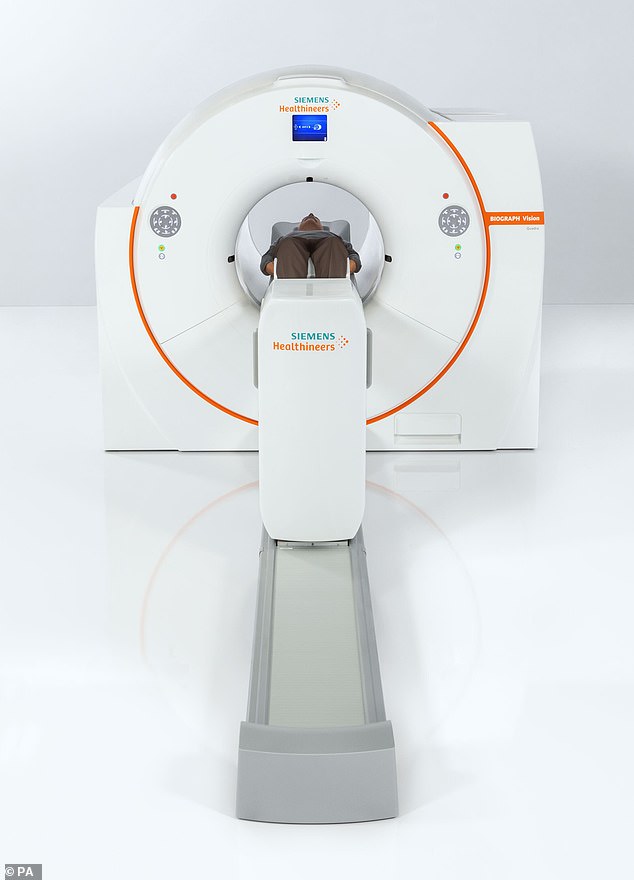New 3D body scanners are a ‘huge step’ forward in treating cancer, dementia and other serious illnesses, health chiefs say
- The high-tech device can perform a full body scan of an adult in five minutes
Ultra-sensitive 3D body scanners are a “huge step” forward in the treatment of cancer, dementia and other serious diseases, health chiefs said last night.
According to experts, the ‘groundbreaking’ high-tech machines can perform a full body scan of an adult in five minutes and a child in one minute.
They provide a single scan of the body instead of multiple images like current machines – making them faster and more sensitive, so they may be able to detect smaller tumors and abnormalities.
For the first time in the UK, two of the machines will be available to patients after being installed at Guy’s and St Thomas’ NHS Trust in London and Edinburgh Royal Infirmary.
The PET-CT scanners can be used in cancer patients to detect whether the disease has spread or to accurately show whether a treatment has worked to completely shrink a tumor.
Ultra-sensitive 3D body scanners are a ‘huge step’ forward in the treatment of cancer, dementia and other serious diseases, health chiefs said last night (File Photo)
For people with heart disease, they can show whether medications are working to clear blockages in the arteries. And for dementia patients, they can show the build-up of harmful molecules in the brain.
There are around 70 PET-CT scanners in Britain, which involve injecting a patient into the body with a mildly radioactive substance that sticks to tumors or blood clots to show their location.
But the sensors on these machines typically only pick up radiation covering an area of about 20 centimeters (eight inches).
It means patients are repeatedly given scans taken at multiple times as they are pushed through the machine, with the images being stitched together.
A full-body PET scanner has many more sensors covering an area four times larger and can image most of the body at once. Not only are the images likely to be more detailed and able to detect smaller tumors, they also require a lower dose of radioactive material for patients, potentially making them safer and faster for children.

According to experts, the ‘groundbreaking’ high-tech machines can perform a full body scan of an adult in five minutes and a child in one minute (File Photo)
The full-body machines will result in much faster images, with current scanners requiring 20 minutes for adults and ten minutes for young children.
Dr. Sam Godfrey, from Cancer Research UK, said: ‘This technology could be a game changer… in understanding the impact of cancer on the whole body.’
Professor Lucy Chappell, chief scientific adviser to the Department of Health and Social Care, called the development ‘a huge step for clinical research’.
The project is supported by £32 million from the Government through the UK’s Research and Innovation Infrastructure Fund.
Dr. Juliana Maynard of Medicines Discovery Catapult said: ‘Total-body PET scanners can detect serious diseases with unprecedented speed and accuracy.’
